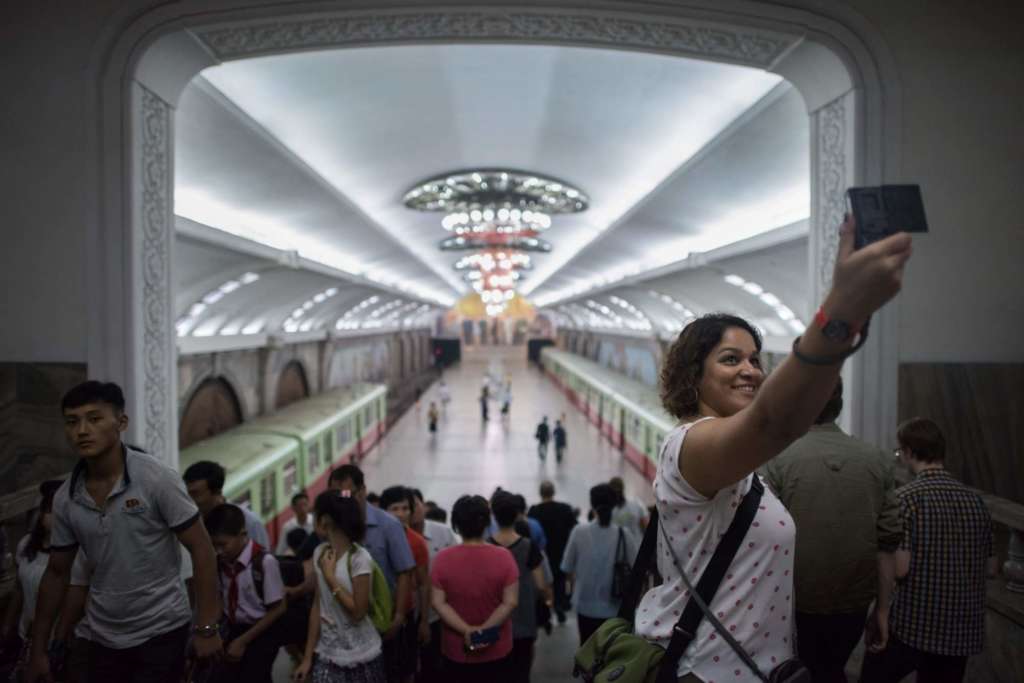The United States’ ban on its citizen from traveling to North Korea will not affect tourism in the country, said a senior development official.
Han Chol-Su, vice-director of the Wonsan Zone Development Corporation added that Pyongyang does not care “at all” about the ban.
“If the US government says Americans cannot come to this country, we don’t care a bit,” he told AFP in Pyongyang.
The ban is due to be enacted this week and once it goes into force US passports will no longer be valid for travel to the isolated country, which is subject to multiple sets of United Nations sanctions over its nuclear and missile programs.
Around 5,000 Western tourists visit the North each year, tour companies say, with Americans numbering about 20 percent of them. Standard one-week trips cost about $2,000.
Washington announced the move after the death of Otto Warmbier, the University of Virginia student who was sentenced to 15 years’ hard labor in the North for trying to steal a propaganda poster.
Warmbier was sent home in a mysterious coma last month -– Pyongyang said he had contracted botulism -– and died soon afterwards, prompting US President Donald Trump to denounce the “brutal regime”.
The State Department has long warned its citizens against traveling to North Korea, telling them they are “at serious risk of arrest and long-term detention under North Korea’s system of law enforcement”, which “imposes unduly harsh sentences for actions that would not be considered crimes in the United States”.
Han’s organization is trying to promote the Wonsan-Mount Kumgang International Tourist Zone, a grandiose vision of a tourism hub on the east coast.
He said Washington’s move was politically motivated. “The US has been continuing with sanctions against us but we don’t care at all,” he said.
Pyongyang officials consistently say that sanctions against their country have no effect on it.
But according to tour companies business has already been hit hard by recent developments, including tensions over the North’s weapons programs, with Trump administration officials warning that military action was an option on the table.
“Certainly, of all the dramas that have gone on lately, the Warmbier issue is the biggest one for tourism,” said Simon Cockerell, general manager of market leader Koryo Tours which has seen bookings fall 50 percent. “It’s depressed the market quite considerably.”
The US decision, he said, would hit North Koreans working in the tourist sector, and wipe out “any possibility of a humanizing human element between those two sides who demonize each other so much”.
Matt Kulesza, of Young Pioneer Tours -– the company which brought Warmbier to the country -– said the ban’s effect on the North would be “absolutely nothing”.
But Americans, he added, would lose “the freedom to travel to DPRK (North Korea) and experience the DPRK for themselves”.
The vast majority of foreign tourists to North Korea are Chinese.
On Tuesday, the US Senate is set to convene in order to vote on new sanctions on Russia, Iran and North Korea.
Meanwhile, China is preparing for a potential crisis with North Korea by increasing its defenses along their shared border, including establishing a new border brigade and building bunkers for civilians, the Wall Street Journal reported.
China has been strengthening its defenses along the North Korean border since Pyongyang’s first nuclear test in 2006, including building a fence along parts of the border and stepping up patrols.
China has also realigned military forces in the country’s northeast, the report added, citing Chinese military and government websites and Chinese and foreign experts.
The Chinese government has repeatedly said there can be no military solution for the North Korea issue.
China is in the midst of a broad military reorganization and modernization program.
On Monday, Chinese Defense Ministry spokesman Wu Qian told reporters he could not answer a “hypothetical” question on what China’s military would do in the event of a clash on the Korean peninsula.
China has long worried about its porous borders and potential for war or unrest to spill over into China, and had stepped up border defenses in other troublesome areas, such as with Myanmar and Central Asian nations.
